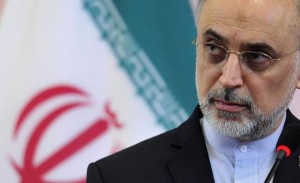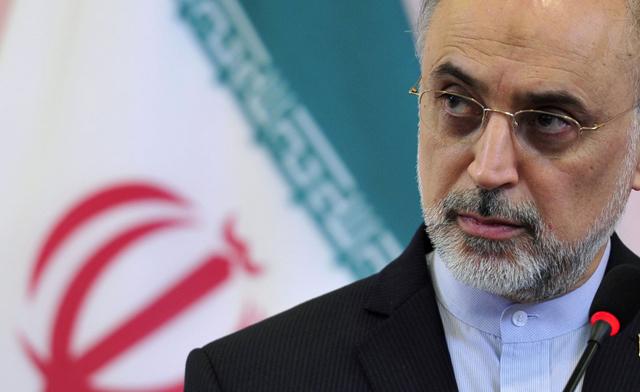
In another signal of closer ties with Egypt, Iranian Foreign Minister Ali Akbar Salehi showered praise on Egypt and President Mohamed Morsy in an interview with Al-Ahram.
“Egypt is the cornerstone in the region, and a country with a special stature, and a distinguished position amongst the Arab and Islamic world,” said Salehi. “It is also rooted in the depth of history, with which we are linked by love, friendship, and brotherhood. We hope and desire that relations with Egypt will return to normal. We are walking in this direction. The Revolution restored Egypt to its natural position, and opened a new chapter in the course of its foreign policy and international relations.”
The relationship between the two states is under examination in the wake of Islamist victories in this year’s elections and in the lead up to Morsy’s announced attendance at the upcoming summit of the Non-Aligned Movement in Iran.
Speaking to the Islamic Republic News Agency, Salehi said he believes the summit will greatly improve Iran’s positioning in the global power structure.
Morsy’s trip to Tehran will mark the first time since Iran’s 1979 Islamic Revolution that an Egyptian head of state visits the country.
Closer ties with Iran could have potentially serious repercussions. First of all, it may dampen ties with Saudi Arabia, something on which Morsy has put a premium. The two nations are often at odds, a major underlying reason being their fundamental Sunni-Shia difference, which provides fodder for nationalistic rhetoric and has been a driver in the regional dynamic surrounding Syria’s civil war. However, Salehi pointed to Iran’s recent attendance of a summit for the Organisation of Islamic States held in Mecca as evidence that Iran is prioritising Islamic unity over regional bickering.
Closer ties with Iran also would have the more obvious effect of straining Egyptian relations with Israel. Just this week, despite a pervading threat of war between Israel and Iran, the Iranian Supreme Leader, Ayatollah Khamenei, told large crowds gathered for Quds Day that Israel will disappear, according to AFP.
Khameinei’s words caused dismayal on the part of United Nations Secretary General Ban Ki-moon who issued a statement saying he “believes that all leaders in the region should use their voices at this time to lower, rather than to escalate, tensions.”
Closer Egyptian-Iran ties also may jeopardise American aid. Morsy’s past statements on Iran have caused some United States politicians to “rethink the $2 billion in aid that it gives every year to Egypt.”
Joe Walsh, a member of the US House of Representatives, authored a letter to congressional leadership recommending that Egypt not receive aid money until Morsy and the Muslim Brotherhood reaffirm treaties with Israel and “promote peace,” despite the fact the Egyptian government has not broken any treaties, nor promoted war. Walsh’s letter received the signature of 35 other members of congress.
One of the reasons the congresspeople gave for writing their letter “with concern,” is the fact that Morsy had “been quoted as stating that he favors normalizing relations with Iran, including expanding areas of political and economic cooperation in order to create a balance of pressure in the region.” Segments of the US government see even nominal improvement in Egyptian-Iranian ties as dangerous and a reason to reconsider aid.


